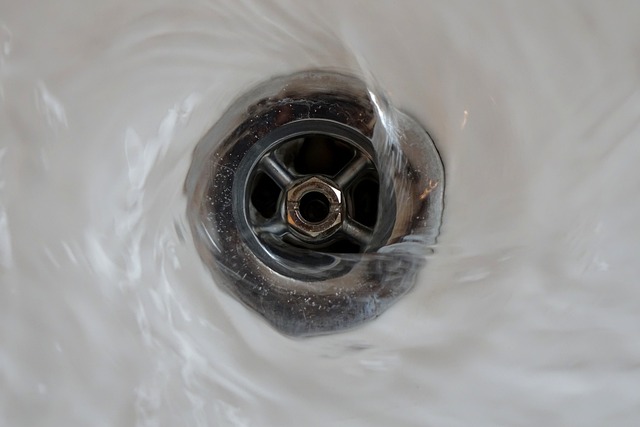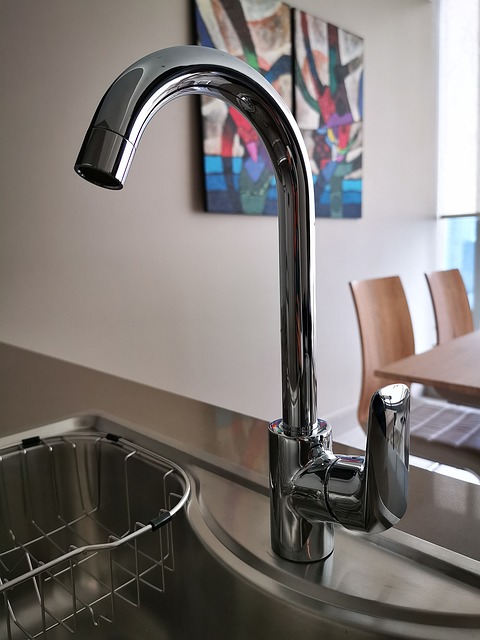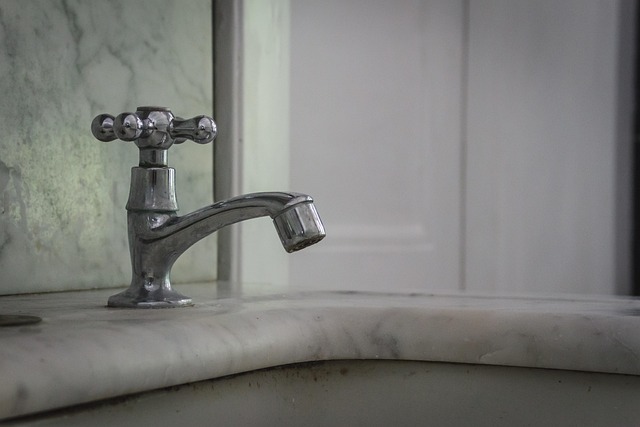Unnoticed drain issues can lead to serious plumbing problems. Recognizing signs like foul odors, slow drainage, and unusual noises is key for maintaining hygiene and preventing damage. Clogs, caused by buildup of grease, hair, soap scum, and non-biodegradables, result in clear indicators like gurgling sounds and standing water. Ignoring these issues can lead to burst pipes or extensive damage. Prompt action on signs of a clogged drain is essential for seamless water flow and avoiding costly complications.
Do you ever wonder what that peculiar smell is wafting from your drains? It could be a sign your drain needs immediate attention. This article guides you through identifying common drain issues, recognizing five distinct signs of distress, and knowing when to call a professional plumber. Learn about the telltale signs like slow draining, bad odors, water backing up, strange noises, and discolored water – all indicators of potential clogs or bigger problems. Equip yourself with knowledge on what to look for and when to seek expert help.
- Identifying Common Drain Issues
- – Discuss the typical causes of drain clogs and other related problems.
- – Examples: Buildup of grease, hair, and soap scum; foreign objects like toys or household items accidentally dropped down the drain.
Identifying Common Drain Issues

Many common drain issues can often go unnoticed, but there are telltale signs that your drains need immediate attention. Identifying these signs early on is crucial for maintaining a hygienic living environment and preventing further damage to your plumbing system. One of the most evident indicators is a persistent foul odor coming from your drains. This could be a sign of a clogged drain or a buildup of bacteria and debris.
Other signs of a blocked drain include slow drainage, where water takes an abnormally long time to flow down the sink or bathtub. If you notice that your drains are backing up frequently, it’s likely due to a clog. Additionally, strange noises like banging or gurgling sounds coming from the pipes can indicate a blockage or other problems within the drain system. Keep an eye out for these subtle yet significant signs, as they are crucial in preventing more serious plumbing emergencies.
– Discuss the typical causes of drain clogs and other related problems.

Drain clogs and related issues are often caused by a buildup of grease, hair, soap scum, and other debris that accumulate over time. These substances can solidify and form hard-to-dissolve residue, leading to slow drainage or complete blockages. Additionally, tree roots seeking water sources can infiltrate pipes, causing damage and obstructions. Another common culprit is the improper disposal of non-biodegradable materials like wipes, sanitary products, or cooking oils, which can adhere to pipe surfaces and create clogs.
The signs of a clogged drain are often noticeable and include slow draining, gurgling sounds, foul odors, and standing water in the basin. These issues may seem trivial at first, but ignoring them can lead to more severe problems like pipes bursting or extensive damage to plumbing systems. Prompt action is crucial when addressing these symptoms to prevent further complications and ensure a seamless flow of water in your home’s drainage system.
– Examples: Buildup of grease, hair, and soap scum; foreign objects like toys or household items accidentally dropped down the drain.

Clogged drains often result from everyday items that build up over time, leading to severe blockages. Common culprits include a buildup of grease, hair, and soap scum—a mixture that can solidify and stick to pipe surfaces, causing significant obstructions. This can be exacerbated by improper disposal of grease from cooking or hair from baths and showers, which should never be poured down the drain.
Additionally, foreign objects like toys, keys, or other household items accidentally dropped down the drain can quickly clog pipes. These objects often get caught in the U-bend of the pipe, preventing water from flowing smoothly and creating a hazardous backup. Identifying these signs early is crucial to avoiding more severe and costly drain issues, making prompt action essential when recognizing any of these typical blocked drain indicators.
If you’ve noticed any of these signs of a clogged drain, it’s time to take action. Promptly addressing issues like unusual odors, slow drainage, or completely blocked drains can prevent more serious and costly damage to your plumbing system. Don’t let simple problems turn into major headaches—get to the root of the issue before it becomes a bigger mess!
